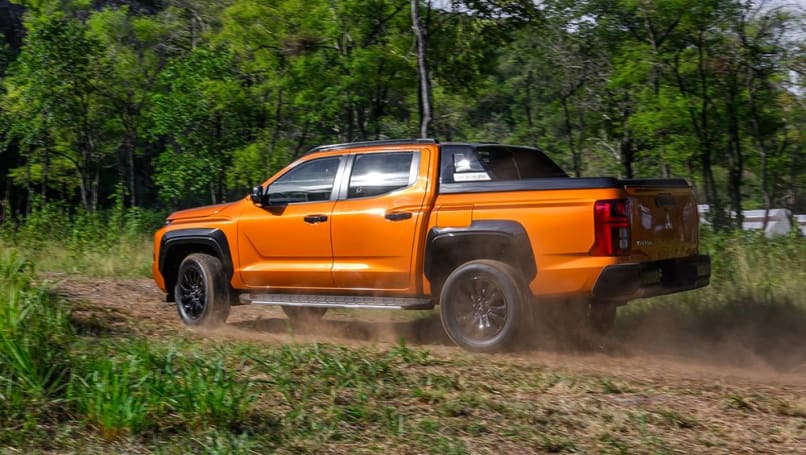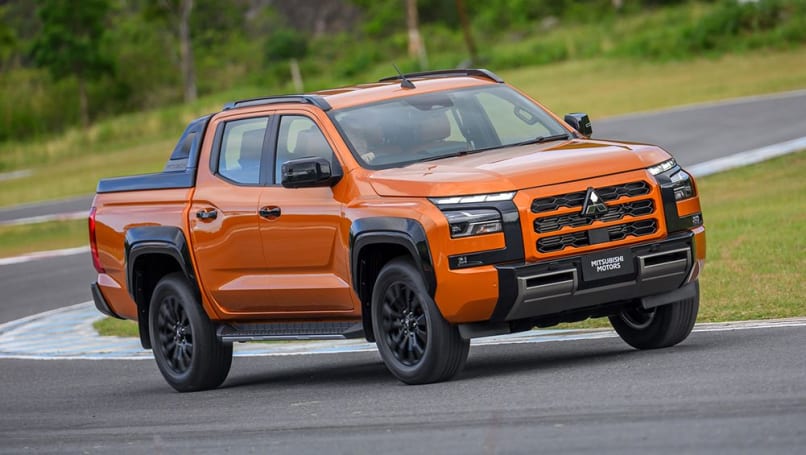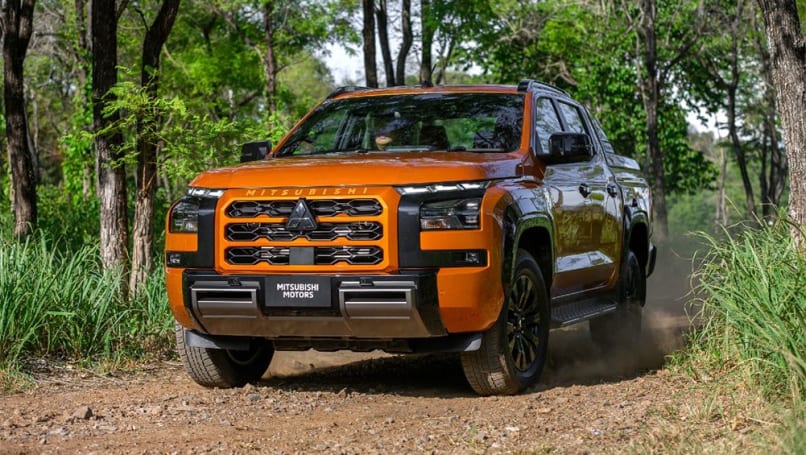
We need faster speed limits in Australia - and I'm not saying that because I'm a hoon | Opinion
Speed kills. It’s the message that we’ve had driven home for decades by law...
Browse over 9,000 car reviews

A new Mitsubishi Triton Ralliart would likely ditch diesel in favour of electrification, with the brand conceding the global abandonment of diesel would likely see future vehicles switch to petrol.
Speaking at the launch of the new Triton, Mitsubishi Australia CEO, Shaun Westcott told CarsGuide that "we are asking for a Ralliart", and suggested similar calls were coming from other ute-heavy markets like South Africa.
Mr Westcott said that those wishes are shared by Mitsubishi management, which would suggest a tougher Triton is likely.
In fact, Mitsubishi displayed its Triton Ralliart racing truck at the Tokyo Mobility Show, with Mr Westcott pointing out that the brand doesn't enter a race series for no reason.
"The opportunity does exist...to enhance the product. And an example of that is what I saw at the Tokyo Mobility Show, standing next to a beautiful Triton Ralliart," he said.
"And what Mitsubishi has demonstrated successfully in the past is that we don't rally just as a show-boating experiment or as a branding experiment ... we actually take the learnings from those rally experiences and we build them into our cars. Whether that be Yaw Control or Super Control, it doesn't matter what it is, we actually build that technology into our cars.
"So the fact that we are there, and that we are in Ralliart and that we are racing the vehicle I think does open up opportunity for us to look at performance enhancement in the future potentially around the vehicle."
If that's the good news, then the bad news is that a combination of global economic headwinds, a world-wide shift away from diesel, and Australia's soon-to-be New Vehicle Emissions Standards will almost certainly see a go-fast model ditch diesel and embrace some form of petrol-electrification.

Mitsubishi in Japan has told CarsGuide that the cost and complexity of delivering a plug-in hybrid diesel engine, largely for a market as small as Australia, has seen them work on developing a plug-in hybrid petrol solution for the Tritons.
Asked whether the new plug-in hybrid system would pair with petrol or diesel, a Mitsubishi spokesperson in Japan told us that, while a plug-in diesel would be popular with its consumers, a combination of cost and regulatory complexity ruled it out.
"We totally understand that we have much demands from our core for PHEV with a diesel engine, however cost-wise that’s impossible," he said.
"Also, when we explore the markets, petrol is much more easy to introduce to many markets. Diesel is unfortunately now harder to get into markets, this is why ... management reason, business reason … petrol makes sense."
In Australia, Mr Westcott suggests that electrification would be coming to the Triton.

"Unfortunately, I guess for all of us, is that the economy is slowing down...and we've just had a vehicle emission standard release and there are going to be recalibrations around high-emitting vehicles and they obviously be offset with low-emitting vehicles, which fortunately we can do in terms of our portfolio," he said.
"There's a lot of considerations in the mix that decide whether we do or whether we don't and if we do when we do and how far we go.
"The whole question of EV, BEV, PHEV – the reality is, and if you look at global MMC in June last year announced that by 2030, 50 per cent of our products would have some form of electrification, and by 2035 we'd be 100-per-cent electrified.
"Whether that includes combinations, I don't think it's either/or, there could be a continuum of evolution within that. And that evolution could be anything from mild hybrid to PHEV, or it may be a leap straight to BEV.
"The reality is, as we sit here, we are at an advanced stage of studying all.

"There will be challenges. Being a ladder-frame technology, anyone who has a ladder-frame vehicle is going to have challenges in putting batteries in there just purely by the nature of where the battery's situated, the size, the configuration.
"But it is under study to see whether it can be done and a lot has to do with battery technology and density of batteries and solid-state batteries and when and where and how quickly they come, because all of those moving parts change what is possible and what's not possible. So all of it's under intense study at the moment."
Comments